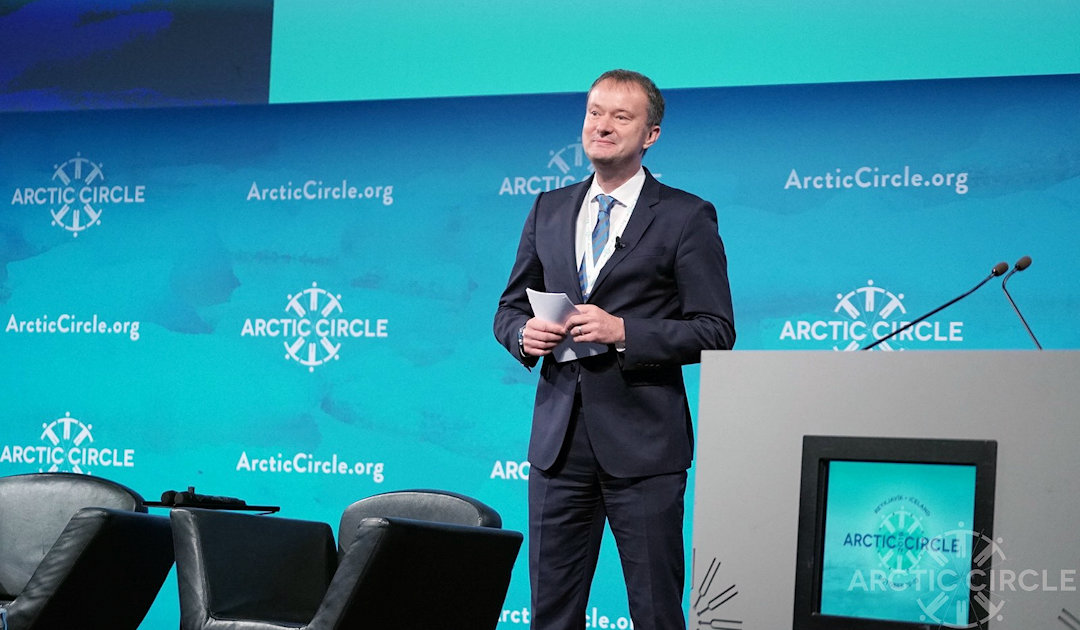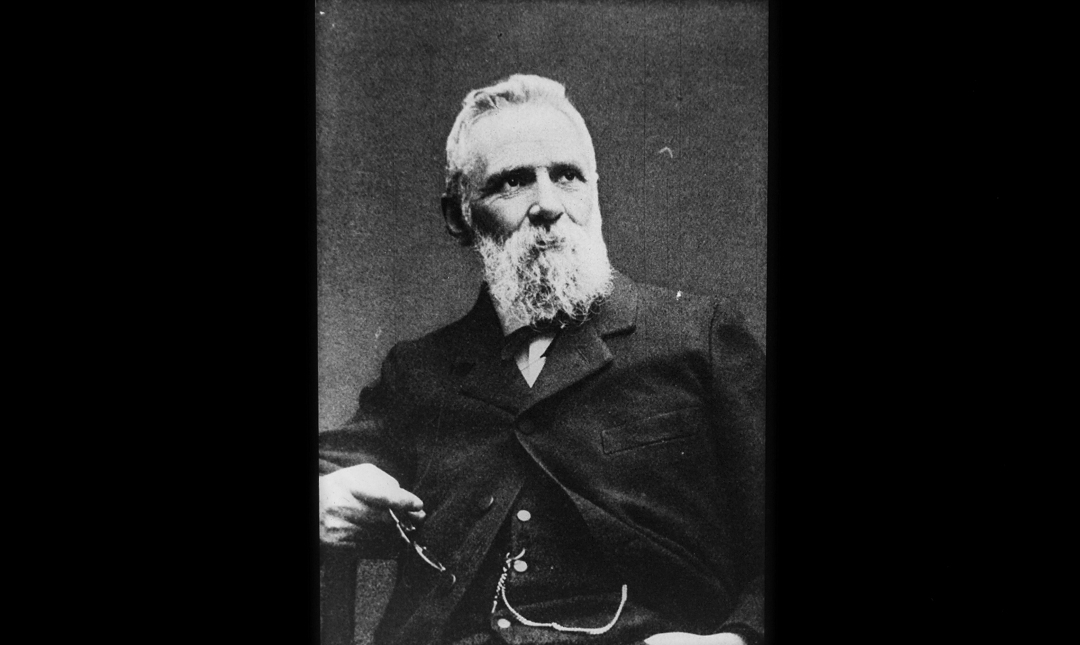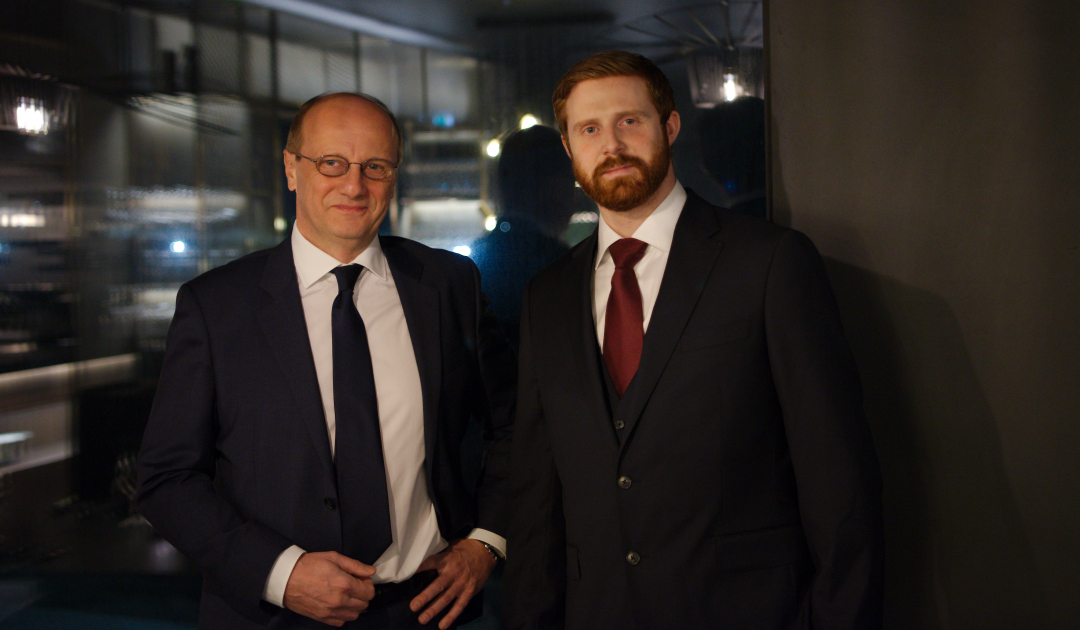
The Norwegian-administered Svalbard archipelago has become the focus of global interest on many levels in recent years, especially in scientific and political terms. This is mainly due to the geographical location of the islands: the last mainland before the Arctic Ocean and at the western entrance to the Northeast Passage. Switzerland, which has been an observer on the Arctic Council since 2017, has also recognised Svalbard’s importance. To this end, an honorary Swiss consulate has now been officially opened and Marcel Schütz has been appointed the first honorary Swiss consul.
In a formal ceremony at the Funken Lodge in Longyearbyen, the Swiss Ambassador to Norway and Iceland, Bernard Jaggy, presented the certificate of appointment to Marcel Schütz, Switzerland’s first Honorary Consul in Svalbard. “Because of Switzerland’s large research activities on Svalbard, it is very important for us to have someone here who can help, who can work with the governor. First and foremost, Marcel Schütz will assist his ambassador on the ground, but he will also serve as a point of contact for Swiss researchers.” The handover was also attended by the Governor of Svalbard, Lars Fause, the Russian Consul General in Svalbard, Sergey Gushkin, and numerous other invited Norwegian and Swiss guests. Governor Fause stated, “For all practical purposes, I welcome a good working relationship with you, Honorary Consul Schütz.” Marcel Schütz thanked Ambassador Jaggy and the guests present and declared in his speech “It fills me with honour and pride to receive this great trust, to be the first Honorary Consul of Switzerland on Svalbard and the very first Honorary Consul ever in the High Arctic”. The ceremony concluded with lunch at the lodge.

“I am happy to be on the spot for Swiss citizens and anyone who needs my many years of Svalbard experience, knowledge or help is welcome.”
Marcel Schütz, new Honorary Consul of Switzerland on Svalbard
Switzerland is the first country to open an honorary consulate on Svalbard. The only other diplomatic representation on the archipelago is the Russian consulate in Barentsburg. All other representation is based on the Norwegian mainland. Until now, the Honorary Consul of Switzerland in Tromsø was responsible for the Svalbard archipelago. “This situation was not ideal for intervening in crisis situations or supporting Switzerland’s interests in this remote region,” explains Ambassador Bernard Jaggy in an interview with PolarJournal. “We count around 3,000 overnight stays by Swiss citizens on this archipelago every year. Most of these are researchers or adventure tourists. That’s where things can happen, and where the support of an honorary consul is valuable.” Marcel Schütz, the new Honorary Consul, knows what Ambassador Jaggy is talking about. He has been living on the archipelago for 12 years and successfully runs a tour company around Svalbard. “Over the years I have come to know many facets of life in the Arctic and as a long-time resident of the archipelago I know the local area very well and have built up a good network,” says Marcel Schütz. “I am happy to be on the spot for Swiss citizens and anyone who needs my many years of Svalbard experience, knowledge or help is welcome.”

The duties of the new Honorary Consul do not only include helping visitors to the Svalbard archipelago who are in distress. Although the task of an honorary consul is honorary, with the help of the Swiss Embassy in Oslo Marcel Schütz can also perform tasks to safeguard Swiss interests on Svalbard. And Switzerland has a great scientific interest in Svalbard and the Arctic as a whole. This already became clear in 2019 with the presentation of the thrust of Switzerland’s engagement in the Arctic at the Arctic Circle meeting in Reykjavik by the Swiss Ambassador to the Arctic Council, Stefan Estermann. “The opening of this honorary consulate is clearly in line with Swiss polar research and the development of the science diplomacy of the Federal Department of Foreign Affairs FDFA,” says Ambassador Jaggy. “Internal clarifications have shown that over a hundred projects have been carried out there in recent years by Swiss universities, research institutes and independent scientists. This is one of the largest concentrations of Swiss research outside our country,” he explains. Marcel Schütz also sees part of his tasks in this area: “My other area of responsibility includes supporting Swiss institutions and universities in the planning and implementation of research projects. I consider the Swiss presence on site to be very valuable, as Svalbard is increasingly in the spotlight. Longyearbyen is the perfect location to conduct polar research.”

“Switzerland is the first country to open an honorary consulate focused on scientific research in the Arctic region.”
Bernard Jaggy, Swiss Ambassador to Norway and Iceland
Svalbard has been the focus of international polar science for decades. Numerous countries have opened research stations in the former mining settlement of Ny-Ålesund. “Few people know, however, that Switzerland is a pioneering nation in Arctic research,” says Ambassador Jaggy. “On Svalbard, this began as early as the 19th century with the work of Professor François-Alphonse Forel, the initiator of the International Glacier Commission. Today, research focuses mainly on climate change, geology, biology and marine pollution. A commitment to sustainability that Switzerland regularly underlines as an observer in the Arctic Council.” With the opening of the honorary consulate, Switzerland also wants to send another signal in this direction. “Switzerland is the first country to open an honorary consulate focusing on scientific research in the Arctic region. It is not impossible that other countries will follow suit,” says Ambassador Jaggy. In this respect, the Ambassador may be right. Only in July this year, during a visit of their ambassador to Svalbard, Poland stated that they had agreed with the governor on the need to establish an honorary Polish consulate in Longyearbyen. “The archipelago is usually found at the top of the world map, but in today’s world it has become a global attraction and is always at the centre of attention,” explains Marcel Schütz. This shows, on the one hand, how important the Arctic archipelago has now become and, on the other, that Switzerland has once again assumed a pioneering role in the Arctic.

Dr Michael Wenger, PolarJournal
More on the topic









